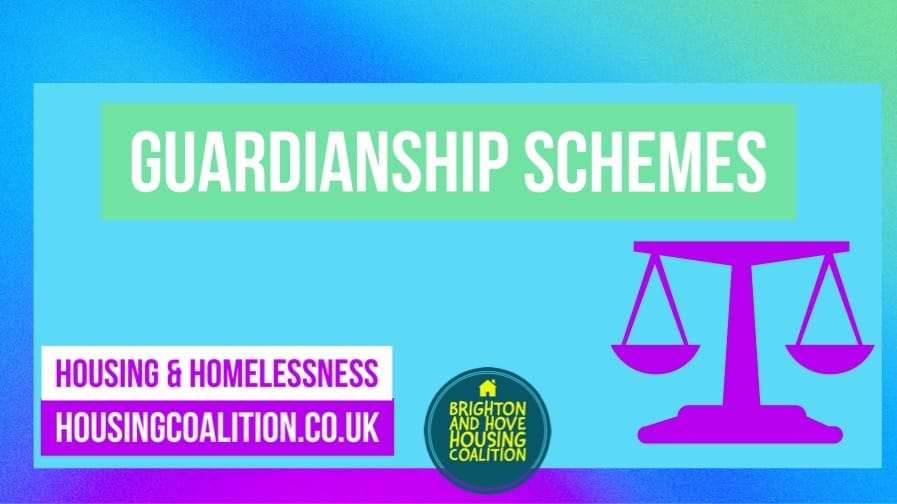Guardianship schemes
Brighton & Hove Housing Coalition is in favour in principle of the idea of using properties that are standing empty pending redevelopment or demolition as temporary homes for people who would not otherwise have them. In general people seek to achieve this by means of guardianship schemes. We have some difficulties with such schemes which derive from their history and the legal set-up.
Guardianship schemes were devised by profit-making companies such Camelot, to make money out of the combination of empty buildings and great housing need. Both local authorities, including left-leaning ones, and the private sector make use of their services. They promise to occupy and secure buildings that would otherwise stand empty and thereby to prevent them from being squatted, while guaranteeing to return the buildings to the owners whenever they are wanted.
Such companies seek to avoid giving any sort of security to occupiers by a variety of devices; the notion that they were “property guardians” with duties to act as security guards came from an attempt to describe them as employees, or self-employed security guards, rather than people living there as their home. That particular legal device was never very convincing and has generally now been abandoned.
The remaining legal issue is whether the occupiers are tenants or licensees. If they are licensees they are still entitled to a minimum of 28 days’ notice and they cannot be lawfully evicted without court proceedings, although guardianship companies often ignore these rights and evict people illegally. If they are tenants, they are assured shorthold tenants, which means it is not easy to evict people quickly (they cannot be evicted for the first six months without good reason and they need two months’ notice afterwards) and they have many regulatory protections. These schemes therefore rely on their being licensees, which in turn depends on whether in truth the occupiers have exclusive possession of one or more rooms.
Conclusion
Any such scheme needs to be carefully examined for its terms. There is no need to impose employee-like obligations on the occupiers; they should have licences, with a minimum of 28 days’ notice. The licence can be in a form that tries to prevent the occupiers being tenants; this seems harsh but is generally necessary to make such schemes work – skilled legal advice is available for drafting such agreements (we know a specialist solicitor). But such schemes must not involve people being put into properties that are unfit for human habitation. There is no reason why they should not be able to attract housing benefit/universal credit.
Any responsible public or voluntary sector organization should in practice accept an obligation to look after the occupiers in some fashion after they are asked to leave, whether by finding them places to stay on similar terms or by finding them some other form of home.
Knoll House 37 Eviction Scandal
Above you see video evidence from an unlawful eviction of 37 Guardianship Scheme tenants from Knoll House in Portslade. You also See CEO BRIGHTON AND HOVE City Council Geoff Raw Promising they will be allowed to stay, the first video shows the aftermath. We are helping one evictee who talking about a massive worsening in his mental health following being placed in an unsupported emergency accommodation hostel in Brighton, reporting lots of issues and an asylum in terms of zombie humans walking around. Scary indeed.


1 Comment
Im looking for guardianship properties in brighton. Do you have any properties your renting on this basis